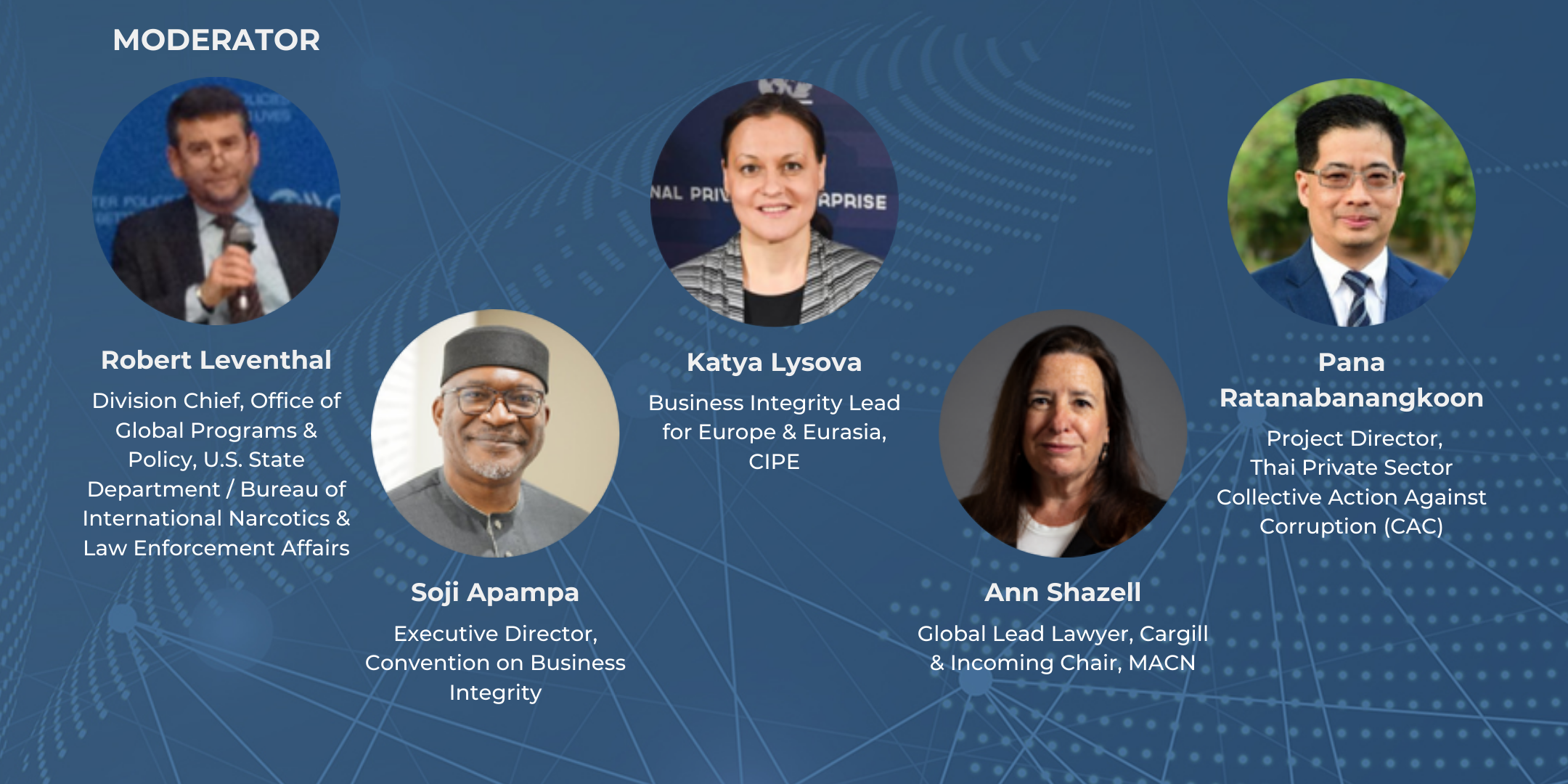About the Event
Maritime trade and development are critical to keeping the global economy moving and ensuring stable governance. Seaports serve as vital infrastructure to economies globally. This has been particularly evident during the past two years as the world has dealt with a global pandemic. With 90% of global trade transported by sea, it is essential for the public and private sectors to work together to ensure smooth flows of vital goods and supplies. Shipping is a heavily regulated industry and is exposed to high risks of corruption due to frequent interactions with government officials in port operations.
Over the last decade, CIPE and MACN have harnessed private sector leadership with the objective of eliminating corruption across all sectors and in the maritime sector specifically. Both organizations have designed and run in-country anti-corruption programs which are built on public-private dialogue, creating incentives for all relevant stakeholders to participate, and driving advocacy. These programs, and the operational models they are based on, have reduced corruption in high-risk countries and supported businesses who seek to operate ethically. Further, the programs have enabled constructive dialogue and improved incentives for governments to take part in this effort.
In this session, participants will hear from government, business, and civil society representatives as they discuss the importance of collective action, transparency, data driven results, government dialogue, and future of digitalization of port interactions and economic and financial systems. MACN will also present its 10-years of risk mapping – including over 45,000 anonymous incident reports of corrupt demands collected by the maritime industry – and review how that data has opened doors and built constructive dialogues between businesses and the public sector.
About the Panel

